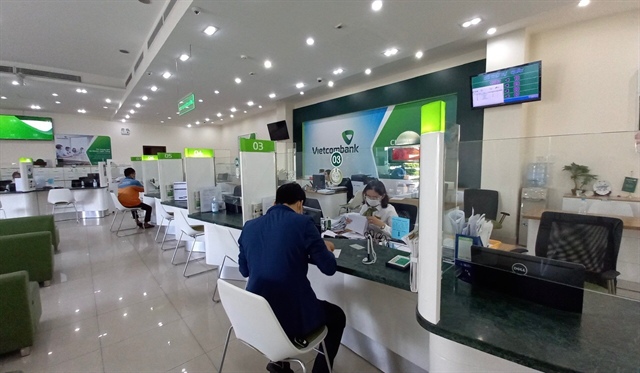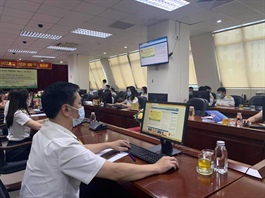Restructuring consolidates financial health of banking sector
Restructuring consolidates financial health of banking sector
The long and serious Covid-19 pandemic has affected the banking sector with bad debts and loans increasing in the third quarter of 2021. However, the 2021 banking business results were positive overall, creating momentum for 2022.

Banking profits are forecast to grow in 2022 |
Posting growth despite pandemic
Demand for capital increased in the final quarter of 2021 after the prolonged social distancing that disrupted business and daily activity. To meet the demand, the State Bank of Vietnam (SBV) allowed some of the banks to extend their credit growth limits.
According to the SBV, by December 2021, outstanding credit balance for 23 policy credit programs of the Vietnam Bank for Social Policies reached VND245.199 trillion, an increase of 8.4 percent compared to a year ago.
Amid the complicated developments of the Covid-19 pandemic, the SBV directed credit institutions to assess the situation and develop plans to deal with bad debts, improve asset quality, control credit quality and limit new bad debts. From the outbreak of Covid-19 early in 2020 to December 20, 2021, credit institutions restructured repayment periods and maintained debt classifications with total value of outstanding loans moving to VND607 trillion. Interest rate exemptions and reductions were also applied for more than 1.96 million customers, with outstanding loans exceeding VND3,870 trillion.
Credit institutions offered service fee exemptions and reductions to support businesses and individuals affected by the pandemic. According to estimates, during the 2020-2021 period, total reduced service fees through the interbank electronic payment system and the Napas system reached about VND2.557 trillion.
Positive signals
Banks’ business activities are forecast to be improved in 2022. However, the level of growth depends greatly on Covid-19 prevention and control, financial-banking expert Nguyen Tri Hieu said. In addition, the government and the SBV’s policy is to continue to further reduce interest rates to support pandemic-hit businesses and individuals, which may affect banks’ profit growth.
Le Quang Trung, deputy CEO and head of the Treasury Division of the Vietnam International Bank (VIB), said bad debts were at high risk as all trade and production activities were halted during the social distancing period. However, the Vietnamese economy is gradually recovering and 70-80 percent of businesses have restarted their trade and production activities, making loan repayment more likely and reducing potential bad debts, Trung said.
After the restructuring period, the financial health of the banking sector has been steadily consolidated. In addition, many commercial banks have been racing to increase charter capital to boost their financial strength and meet the SBV’s regulations on capital adequacy ratio, creating a foundation for greater resilience.
| A VND800 trillion support package, if approved and implemented, will support Vietnam’s economic recovery. Business activities of commercial banks will also thrive as enterprises have more cash flows and potential bad debts are reduced. |























